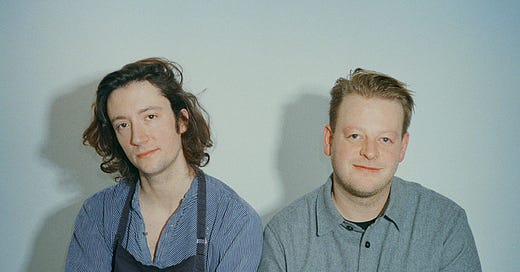Hi there,
Two Saturdays before last I was carbo-loading on cheese balls and deep-fried garlic bread (did y’all know about this dish? It’s called kuuslauguleivad in Estonia and kepta duona in Lithuania and has frankly been one of the great discoveries to come from my recent time in the Baltics) at a beer hall in Tallinn in preparation for a pre-dawn military exercise in the woods with a bunch of Estonians training to fight off a potential Russian invasion. One Saturday before last I was drinking champagne and eating a highly delicious turbot baked beneath an ornately piped layer of pommes duchesses at Maison in Copenhagen. It’s enough to give a girl whiplash.
I suspect a lot of us are feeling that way right now, as we drift between the horrors we see on the news and our mostly pleasant lives in safe cities that are inching their way toward spring. Social media only exacerbates the dislocation. You scroll through—food, food, someone’s cute dog, bombed out hospital in Mariupol–and the juxtaposition itself is simultaneously jarring and numbing. I don’t know how to navigate it.
Except, maybe, by leaning into it. The last couple of issues of Bord have been about what the war has meant for Ukrainian chefs, and I imagine I’ll be periodically doing that kind of story for as long as this conflict lasts. But there are other stories I want to tell as well. Like this one, about the opening of Brasserie Prins, and what it tells us about the apparently endless karmic cycle of traditional French cuisine.
Thanks for reading,
Lisa
Like so many restaurants on the verge of opening, Brasserie Prins looked nowhere near ready to open. With less than a day before the first guests would show up for the



